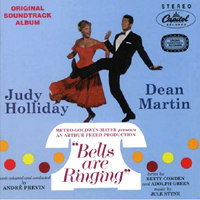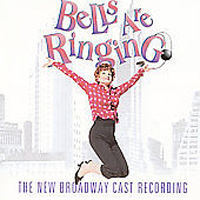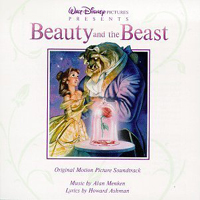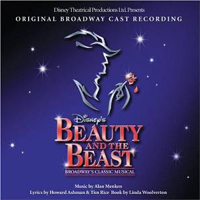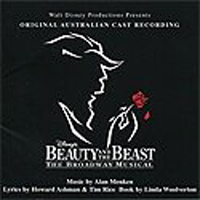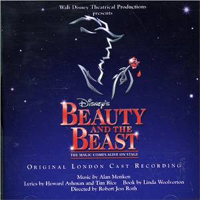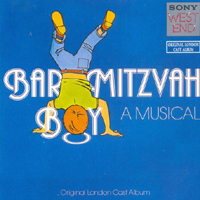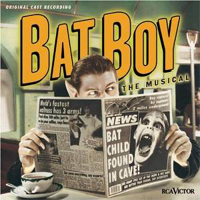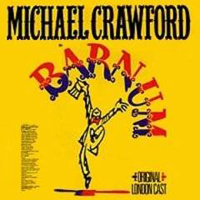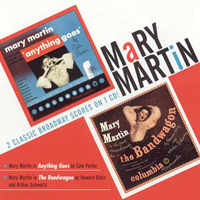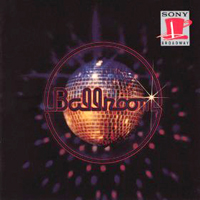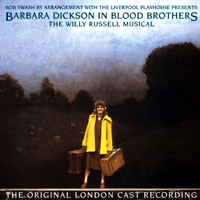 Original London Cast, 1983 (Castle)
Original London Cast, 1983 (Castle)  (2 / 5) This is the story of Mrs. Johnstone, a lower-class Liverpudlian whose husband deserts her, even though she’s pregnant and already has seven children. Mrs. J., having determined that she can afford to care and provide for only one more child, is devastated to learn that she’ll be giving birth to twins. In desperation, she agrees to let her rich employer, Mrs. Lyons, take one of the babies to raise as her own. At age seven, the two non-identical twin boys — Mrs. J’s Mickey and Mrs. L’s Eddie — improbably meet and become fast friends, unaware that they are siblings. Years later, this melodramatic situation leads to tragedy, explicated in ominous tones by a Narrator. It’s easy to make fun of Blood Brothers, and indeed, it inspired a hilarious Forbidden Broadway spoof. With book, music, and lyrics by Willy Russell, the show is very earnest, but it leaves much to be desired in terms of professional polish. Some of the lyrics don’t quite fit the music, and there are several imperfect rhymes (“chap/chat”) along with some neat, clever ones (“soldier/told yer”). In the first version of a song titled “Marilyn Monroe,” most of the references to that screen goddess are apt, but they become strained to the point of ridiculousness in subsequent numbers. On the whole, Russell’s music is better than his lyrics; the melodies of “Sunday Afternoon,” “Easy Terms,” and “Tell Me It’s Not True” are haunting, while “Bright New Day” is joyous. Some melodies and themes recur with added impact, as when the tune of “My Child,” sung early on by the two mothers, is later used for “My Friend,” the twins’ declaration of their instinctive bond. Other recurring melodies and/or lyrics are simply annoying, as for example the seemingly endless repetitions of the phrase “You know the devil’s got your number.” The strong cast of the first recording is led by Barbara Dickson as Mrs. Johnstone, George Costigan as Mickey, Andrew C. Wadsworth as Eddie, and Andrew Schofield as the Narrator, but the score’s virtues are undermined by keyboard-and-synthesizer-heavy arrangements. — Michael Portantiere
(2 / 5) This is the story of Mrs. Johnstone, a lower-class Liverpudlian whose husband deserts her, even though she’s pregnant and already has seven children. Mrs. J., having determined that she can afford to care and provide for only one more child, is devastated to learn that she’ll be giving birth to twins. In desperation, she agrees to let her rich employer, Mrs. Lyons, take one of the babies to raise as her own. At age seven, the two non-identical twin boys — Mrs. J’s Mickey and Mrs. L’s Eddie — improbably meet and become fast friends, unaware that they are siblings. Years later, this melodramatic situation leads to tragedy, explicated in ominous tones by a Narrator. It’s easy to make fun of Blood Brothers, and indeed, it inspired a hilarious Forbidden Broadway spoof. With book, music, and lyrics by Willy Russell, the show is very earnest, but it leaves much to be desired in terms of professional polish. Some of the lyrics don’t quite fit the music, and there are several imperfect rhymes (“chap/chat”) along with some neat, clever ones (“soldier/told yer”). In the first version of a song titled “Marilyn Monroe,” most of the references to that screen goddess are apt, but they become strained to the point of ridiculousness in subsequent numbers. On the whole, Russell’s music is better than his lyrics; the melodies of “Sunday Afternoon,” “Easy Terms,” and “Tell Me It’s Not True” are haunting, while “Bright New Day” is joyous. Some melodies and themes recur with added impact, as when the tune of “My Child,” sung early on by the two mothers, is later used for “My Friend,” the twins’ declaration of their instinctive bond. Other recurring melodies and/or lyrics are simply annoying, as for example the seemingly endless repetitions of the phrase “You know the devil’s got your number.” The strong cast of the first recording is led by Barbara Dickson as Mrs. Johnstone, George Costigan as Mickey, Andrew C. Wadsworth as Eddie, and Andrew Schofield as the Narrator, but the score’s virtues are undermined by keyboard-and-synthesizer-heavy arrangements. — Michael Portantiere
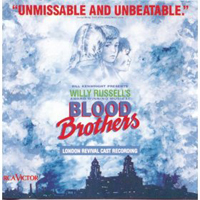 London Cast, 1988 (RCA)
London Cast, 1988 (RCA)  (3 / 5) This recording is superior to its predecessor, offering better arrangements/orchestrations and more music — about 15 minutes’ worth. Oddly, the song originally called “The Devil’s Got Your Number” is now called “Shoes Upon the Table.” Other titles have changed as well. Kiki Dee, best known as a Brit-pop singer and sometime musical partner of Elton John, is very good as Mrs. Johnstone. So is Robert Locke in the role of Eddie. And Con O’Neill is the best Mickey in all the recordings under review, bringing to the character a wonderfully winning innocence in the childhood stage and a moving angst as an adult. Also praiseworthy is Warwick Evans as the Narrator. (Both O’Neill and Evans would go on to play these roles in the 1993 Broadway production of Blood Brothers, which did not yield a cast recording.) — M.P.
(3 / 5) This recording is superior to its predecessor, offering better arrangements/orchestrations and more music — about 15 minutes’ worth. Oddly, the song originally called “The Devil’s Got Your Number” is now called “Shoes Upon the Table.” Other titles have changed as well. Kiki Dee, best known as a Brit-pop singer and sometime musical partner of Elton John, is very good as Mrs. Johnstone. So is Robert Locke in the role of Eddie. And Con O’Neill is the best Mickey in all the recordings under review, bringing to the character a wonderfully winning innocence in the childhood stage and a moving angst as an adult. Also praiseworthy is Warwick Evans as the Narrator. (Both O’Neill and Evans would go on to play these roles in the 1993 Broadway production of Blood Brothers, which did not yield a cast recording.) — M.P.
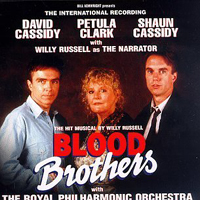 The International Recording, 1995 (First Night)
The International Recording, 1995 (First Night)  (4 / 5) Three starry leads and the Royal Philharmonic Orchestra will make this the preferred Blood Brothers recording for many listeners. At over an hour in length, it’s also the most complete of the recordings under review. The singers and the huge orchestra are recorded in a weighty, reverberant acoustic that makes the score seem lush and important or somewhat heavy and pretentious, depending on one’s taste; the overture here is a far cry from the synthesized sound of the one on the first Blood Brothers cast album. As for the famous lead singers, it’s a pleasure to report that all three are excellent. Petula Clark, a major pop star of the 1960s with impressive stage and film credits as well, has a compelling, soulful voice that’s perfect for Mrs. Johnstone. The erstwhile American teen idols David and Sean Cassidy, half-brothers in real life, sing very well as Mickey and Eddie, and their Brit accents are quite convincing. The Narrator here is Willy Russell, who wrote the show’s book, music, and lyrics. — M.P.
(4 / 5) Three starry leads and the Royal Philharmonic Orchestra will make this the preferred Blood Brothers recording for many listeners. At over an hour in length, it’s also the most complete of the recordings under review. The singers and the huge orchestra are recorded in a weighty, reverberant acoustic that makes the score seem lush and important or somewhat heavy and pretentious, depending on one’s taste; the overture here is a far cry from the synthesized sound of the one on the first Blood Brothers cast album. As for the famous lead singers, it’s a pleasure to report that all three are excellent. Petula Clark, a major pop star of the 1960s with impressive stage and film credits as well, has a compelling, soulful voice that’s perfect for Mrs. Johnstone. The erstwhile American teen idols David and Sean Cassidy, half-brothers in real life, sing very well as Mickey and Eddie, and their Brit accents are quite convincing. The Narrator here is Willy Russell, who wrote the show’s book, music, and lyrics. — M.P.
 London Cast, 1995 (First Night)
London Cast, 1995 (First Night)  (3 / 5) This recording is worth tracking down primarily for the superb singing and acting of Stephanie Lawrence, who had previously played Mrs. Johnstone on Broadway in 1993. Here heading a fine cast that also includes Paul Crosby as Mickey and Joanna Monro as Mrs. Lyons, with Warwick Evans back as the Narrator, Lawrence is in a class by herself as Mrs. J. The fact that she died at age 50, about five years after this recording, only increases the value of the album as a memento of her heartbreaking performance, so deeply committed that it even makes the most purple passages of the score seem moving rather than silly. Another big plus is the endearing Eddie of Mark Hutchinson, who had also been a member of the first Broadway cast of the show; his rendition of the sweet pop ballad “I’m Not Saying a Word” is particularly enjoyable. — M.P.
(3 / 5) This recording is worth tracking down primarily for the superb singing and acting of Stephanie Lawrence, who had previously played Mrs. Johnstone on Broadway in 1993. Here heading a fine cast that also includes Paul Crosby as Mickey and Joanna Monro as Mrs. Lyons, with Warwick Evans back as the Narrator, Lawrence is in a class by herself as Mrs. J. The fact that she died at age 50, about five years after this recording, only increases the value of the album as a memento of her heartbreaking performance, so deeply committed that it even makes the most purple passages of the score seem moving rather than silly. Another big plus is the endearing Eddie of Mark Hutchinson, who had also been a member of the first Broadway cast of the show; his rendition of the sweet pop ballad “I’m Not Saying a Word” is particularly enjoyable. — M.P.


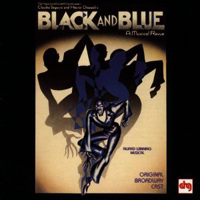
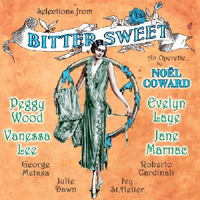
 (1 / 5) It seemed a radical idea in 1929: an operetta with believable characters, literate dialogue, first-rate lyrics, and a minimum of the coyness associated with the form. With Noël Coward providing all of the above, plus the music, a classic was born — a sentimental love story with grace, intelligence, wit, and irony. Alas, the recording industry has yet to do the show full justice. Aside from a few tracks featuring the original London cast (including Peggy Wood, whose “Zigeuner” sounds like a madwoman’s hysterics), Bitter Sweet has rated only two studio cast recordings and one stage revival cast album. The first studio effort is this atrocity, issued in over-emphatic early stereo and clocking in at a modest but by no means brisk 40 minutes. Are the singers at fault? Not really. Vanessa Lee’s Sarah has spirit and excellent top notes, while Roberto Cardinali’s sturdy tenor lends romantic presence in the role of Carl. On the other hand, Julie Dawn’s Manon — who sings “If Love Were All” and “Kiss Me” — is a sexy French kitten, not the world-weary chanteuse so superbly embodied by Ivy St. Helier in the original. But don’t blame Dawn or even Michael Collins’ turgid conducting; blame the orchestrations, by Brian Fahey and Ray Terry. Overwhelmed by violins, they spread a thick, maple sugar glaze over Coward’s delicate story. The Sepia CD compilation is far more interesting for its inclusion of the few recordings by the original cast. — Marc Miller
(1 / 5) It seemed a radical idea in 1929: an operetta with believable characters, literate dialogue, first-rate lyrics, and a minimum of the coyness associated with the form. With Noël Coward providing all of the above, plus the music, a classic was born — a sentimental love story with grace, intelligence, wit, and irony. Alas, the recording industry has yet to do the show full justice. Aside from a few tracks featuring the original London cast (including Peggy Wood, whose “Zigeuner” sounds like a madwoman’s hysterics), Bitter Sweet has rated only two studio cast recordings and one stage revival cast album. The first studio effort is this atrocity, issued in over-emphatic early stereo and clocking in at a modest but by no means brisk 40 minutes. Are the singers at fault? Not really. Vanessa Lee’s Sarah has spirit and excellent top notes, while Roberto Cardinali’s sturdy tenor lends romantic presence in the role of Carl. On the other hand, Julie Dawn’s Manon — who sings “If Love Were All” and “Kiss Me” — is a sexy French kitten, not the world-weary chanteuse so superbly embodied by Ivy St. Helier in the original. But don’t blame Dawn or even Michael Collins’ turgid conducting; blame the orchestrations, by Brian Fahey and Ray Terry. Overwhelmed by violins, they spread a thick, maple sugar glaze over Coward’s delicate story. The Sepia CD compilation is far more interesting for its inclusion of the few recordings by the original cast. — Marc Miller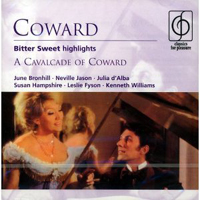
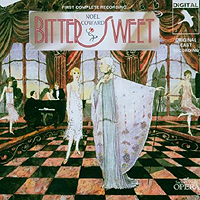
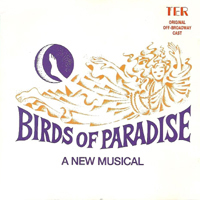
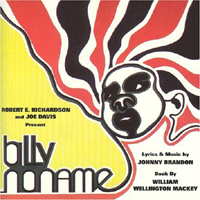
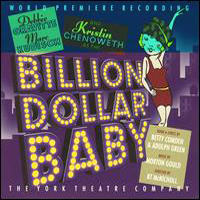
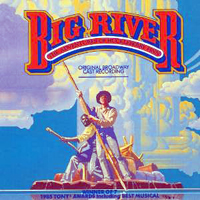

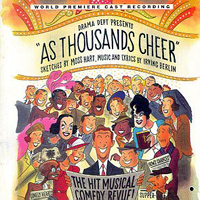
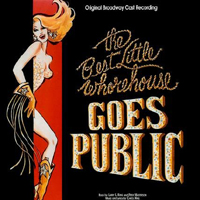
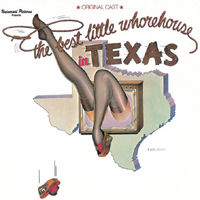
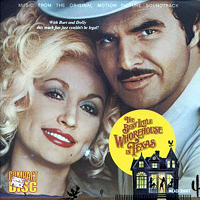
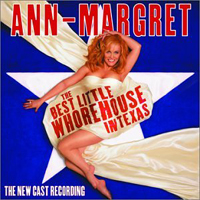
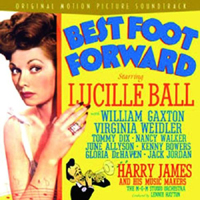
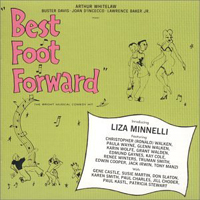
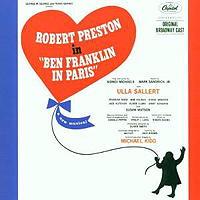
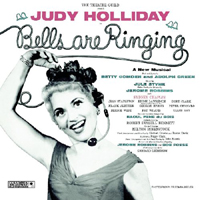
 (5 / 5) There was only one Judy Holliday, a comic genius who could make you laugh, then break your heart a split second later. Her good friends Betty Comden and Adolph Green provided her with a loving showcase in Bells Are Ringing, and this essential recording preserves one of the great Broadway performances. Holliday stars as Ella Peterson, a lonely operator for the Susanswerphone answering service, who meddles in the lives of her clients. Breaking all the rules, she helps Jeff Moss (Sydney Chaplin), a boozing, self-doubting Broadway playwright, get his career back in order — without revealing her identity. There’s more trouble brewing when another client, Sandor, posing as the head of a classical record company, uses Susanswerphone as the front for a betting ring. This less-than-magisterial plot is fitted out with the most delightful score to come from the long-running partnership of Comden, Green, and Jule Styne. Holliday is given free rein in “It’s a Perfect Relationship,” her fantasy about Jeff; “Is It a Crime?” (her defense of meddling), in which she says that if she’d been around in the days of Romeo and Juliet, “Those two kids would be alive today!”; and the number to end all 11-o’clock numbers, “I’m Going Back.” “Drop That Name,” sung by the chic guests at an Upper East Side party, is a dazzling catalog of celebrities circa 1956, and “The Midas Touch” is a typically funny Comden and Green spoof of nightclub shows. The story’s melancholy undertone comes through in the moving “Long Before I Knew You” and in that ultimate song of resignation, “The Party’s Over.” As Jeff, Sydney Chaplin has a masculine manner and boyish enthusiasm that are real ‘assets, and he partners delightfully with Holliday in the lovely “Just in Time.” Eddie Lawrence is an amusing Sandor — especially when seducing Jean Stapleton as Sue, Ella’s boss and cousin, in the comic waltz “Salzburg.” Peter Gennaro is Holliday’s playmate in the Latin dance spoof “Mu-Cha-Cha.” Robert Russell Bennett’s orchestrations are jaunty and witty. Bonus tracks on the CD include Jule Styne performing “It’s a Perfect Relationship,” “Just in Time,” and the cut song “Boogie, Woogie, Shoogie, Baby.” — David Barbour
(5 / 5) There was only one Judy Holliday, a comic genius who could make you laugh, then break your heart a split second later. Her good friends Betty Comden and Adolph Green provided her with a loving showcase in Bells Are Ringing, and this essential recording preserves one of the great Broadway performances. Holliday stars as Ella Peterson, a lonely operator for the Susanswerphone answering service, who meddles in the lives of her clients. Breaking all the rules, she helps Jeff Moss (Sydney Chaplin), a boozing, self-doubting Broadway playwright, get his career back in order — without revealing her identity. There’s more trouble brewing when another client, Sandor, posing as the head of a classical record company, uses Susanswerphone as the front for a betting ring. This less-than-magisterial plot is fitted out with the most delightful score to come from the long-running partnership of Comden, Green, and Jule Styne. Holliday is given free rein in “It’s a Perfect Relationship,” her fantasy about Jeff; “Is It a Crime?” (her defense of meddling), in which she says that if she’d been around in the days of Romeo and Juliet, “Those two kids would be alive today!”; and the number to end all 11-o’clock numbers, “I’m Going Back.” “Drop That Name,” sung by the chic guests at an Upper East Side party, is a dazzling catalog of celebrities circa 1956, and “The Midas Touch” is a typically funny Comden and Green spoof of nightclub shows. The story’s melancholy undertone comes through in the moving “Long Before I Knew You” and in that ultimate song of resignation, “The Party’s Over.” As Jeff, Sydney Chaplin has a masculine manner and boyish enthusiasm that are real ‘assets, and he partners delightfully with Holliday in the lovely “Just in Time.” Eddie Lawrence is an amusing Sandor — especially when seducing Jean Stapleton as Sue, Ella’s boss and cousin, in the comic waltz “Salzburg.” Peter Gennaro is Holliday’s playmate in the Latin dance spoof “Mu-Cha-Cha.” Robert Russell Bennett’s orchestrations are jaunty and witty. Bonus tracks on the CD include Jule Styne performing “It’s a Perfect Relationship,” “Just in Time,” and the cut song “Boogie, Woogie, Shoogie, Baby.” — David Barbour